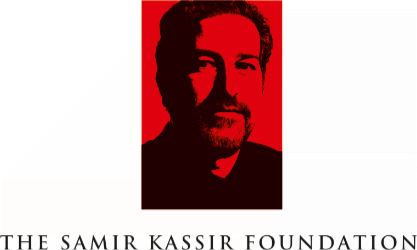Radio
In Lebanon, radio is one of the favorite means to access information after TV. Radio reaches 74% of the population. With over 40 radio stations, it is one of the most diversified media sectors. As of 2015, 72% of radio stations offer broadcasting in Arabic, 48% in English and 24% in French. In 1994, the Audiovisual Media Law abolished state monopoly on the broadcasting sector. This led dozens of TV and radio stations that opened during and after the civil war to close, favoring the control of a few powerful local and regional tycoons on the sector at the expense of pluralism.
Two categories of radio
After the 1994 Law was passed, the Council of Ministers allowed 15 radio stations to broadcast in two categories: 1 and 2. Since, several other stations have been licensed.
Category 1 stations are allowed to broadcast political news. This category includes Radio Orient, Radio Liban Libre, Jabal Lebnan, NBN (Radio Al-Risala), Al-Nour, Sawt El Shaab, Voix du Liban 100.3, Sawt El Ghad, Voice of Van, Sawt El Watan, Sawt El Mada, Nidaa FM, Lubnan Al-Arabi, Voice of Beirut, Radio Liban, Al-Fajr Radio, and Voix du Liban 93.3, among others. Category 2 radio stations are not authorized to broadcast political news. These are Radio Delta, Radio Scoop, France FM, Light FM, Faddoul Music, Radio In, Sound of Music, Radio One, Nostalgie, Mix FM, Pax Network, Al-Bachaer, Radio Al-Wihda, MSB, Strike, and Rotana Radio among others.
Out of the eight radio stations chosen within the MOM project, only one is state-owned (Radio Liban), five are affiliated with political parties (Voix du Liban 100.3, Radio Liban Libre, Sawt El Shaab, Sawt El Mada and Al-Nour), while the remaining two (Voix du Liban 93.3 and Radio Orient) belong to Lebanese families, which have been highly engaged in Lebanese politics. Six out of eight radio stations are owned by political parties who also own TV stations and newspapers: Al-Nour is a pro-Hezbollah radio station, Voix du Liban 100.3 is pro-Phalange Party, Radio Liban Libre is pro-Lebanese Forces, Sawt El-Mada is pro-Free Patriotic Movement, Radio Orient is pro-Future Movement, and Sawt El Shaab is pro-Communist Party.
Metadata
There is also an Armenian radio station called Voice of Van, which broadcasts most of its programs in Armenian, and several religious radio stations such as Voice of Charity and Voice of Gospel, along with sports stations such as Nejmé FM and Ansar FM.
Sources
Dennis, E., Martin, J., & Wood, R. (2017). Media use in the Middle East, 2017: A seven-nation survey. Northwestern University in Qatar.
Accessed on November 20, 2018. الإعلام المرئي والمسموع في لبنان: السياسيون والطوائف يتقاسمون القطاع الإعلامي.
Lebanon FM Frequencies. FM Scan. Accessed on September 28, 2018
BBC. Lebanon profile. Accessed on September 28, 2018.











